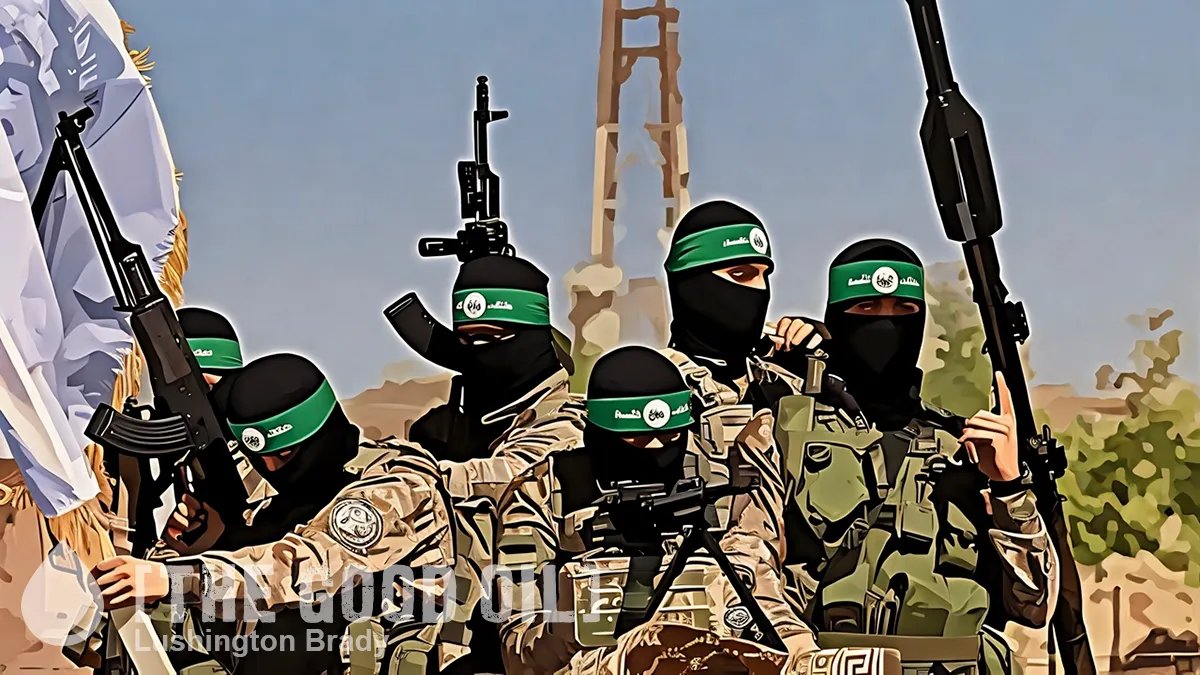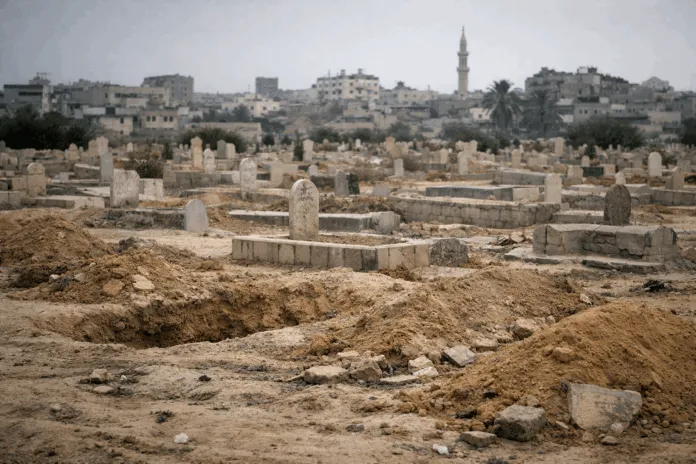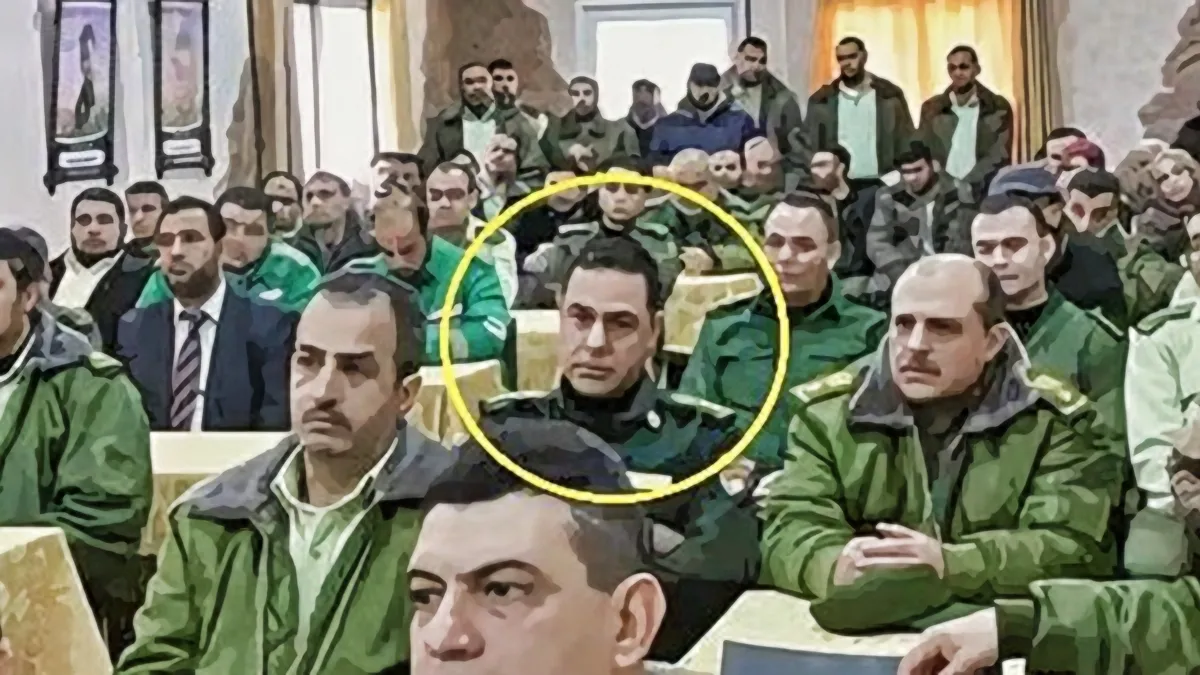Table of Contents
BICOM
BICOM provides accurate, timely and balanced information that is read by officials, experts, journalists and many others.
What happened: 18 of Hamas’s 24 battalions have been defeated and the Khan Yunis Brigade is now no longer effectively operating.
- 200 terrorists have surrendered at the city’s Nasser Hospital, alongside dozens at Al Amal Hospital.
- The IDF says troops have detained hundreds of terror operatives — some of whom were dressed up as hospital staff — and other suspects who were holed up at the hospital, including many who participated in the October 7th massacre.
- Troops also found links to the hostages held by the terror group as well as unopened boxes of medications bearing the names of hostages.
- Defence Minister Yoav Gallant described Hamas’ military capacity as remaining on the fringes of central Gazan camps and within Rafah, and vowed to disband Hamas’ remaining six battalions. “Nobody is coming to help them – not the Iranians, not international aid” he added.
- Gallant also said that Hamas is looking for a replacement for its Gazan leader Yahya Sinwar: “there is a bid for who will be the ruling actor… the external leadership is looking for internal leadership.”
Palestinian Statehood?: Israel’s cabinet pushed back against reported plans within the international community to unilaterally recognise a Palestinian state.
- A unanimously agreed statement read “a settlement, if it is to be reached, will come about solely through direct negotiations between the parties, without preconditions” and called unilateral recognition of a Palestinian state “a massive and unprecedented reward to terrorism and would foil any future peace settlement.”
- Minister Gantz later emphasised the importance of cooperation with the US, adding that victory in Gaza “goes hand in hand with our will to expand the circle of peace and form a united regional axis facing Iran. For that reason, the normalisation process with Saudi Arabia is an important endeavour we must pursue – and I am personally working toward it… It is through facilitating long-term processes that will consolidate a regional architecture facing the Iranian axis of terror, and by advancing international arrangements that will improve the lives of people throughout the region and promote stability and peace,” he says.
- Gantz also warned about “one-sided actions”. “After October 7, the pathway to regional stability and peace is not through one-sided actions like recognition of a Palestinian state.”
Context: Israel has historically rejected unilateral recognition, but this latest statement by this right-wing government leaves open the opportunity for a two-state solution.
- Israel was supported in this position by US Ambassador to Israel Lew, who said “We have never said there should be a unilateral recognition of a Palestinian state but rather an “over-the-horizon process that includes a vision for a demilitarised Palestinian state.”
- Despite accusations, the IDF is insisting that the Nasser hospital is able to continue its operations and that it has acted “without harming the patients and medical staff and in accordance with the values of the IDF and international law.
- As part of its vision for two states, the Biden Administration is making moves to support the ailing Palestinian Authority (PA) in the West Bank.
- The US has repeatedly indicated a preference for having the PA assume a central role in a post-Hamas Gaza, and is reacting to news that Mahmoud Abbas’s government is fast running out of money.
- A senior Palestinian official claimed that US reduction in aid and the suspension of Israeli tax revenues after the Hamas-led October 7 attack has put the PA ‘on the verge of financial collapse.’ Approximately 90,000 West Bank PA employees – including members of the security services and police – as well as 30,000 PA employees who live in Gaza have not received their salaries since November.
- The PA has also suffered from the loss of taxes from Palestinian labourers who since October 7 are no longer entering Israel and West Bank settlements. These labourers used to earn a relatively high salary and bring in over 1bn USD into PA territory annually, an amount constituting slightly more than a quarter of the West Bank’s GDP.
- To support the PA, the Biden administration would need to circumvent a US law that prevents it from contributing directly to the PA, due to Ramallah’s pay-for-slay policy which provides stipends for terrorists and their families.
- Yesterday the Norwegian government announced it had agreed to assist in the transfer of frozen tax funds earmarked for the PA that were collected by Israel.
Looking ahead: Contrary to prior statements made by Israeli officials, a ground operation in Rafah is not thought to be imminent.
- Before undertaking an operation in Rafah, the IDF will need to move the civilian population. Khan Yunis and other places are options.
- Israel is hoping that continued military advancements will create pressure to renew hostage negotiations on more favourable terms. There is hope that any ground operation could be completed before Ramadan, but that remains an optimistic time frame.
- The IDF will also likely operate against two Hamas battalions in the refugee camps in the central Gaza Strip before turning its attention to Rafah.
- Gantz also warned that Israel would carry out a ground operation in Rafah unless the hostages were freed before Ramadan, on 10 March.
The West Bank in the Shadow of October 7
This BICOM research paper identifies dangerous trends in the West Bank, and maps Israel’s challenges in this arena in the post-October 7 context.
Download BICOM’s briefing here
PODCAST
NEW
Episode 227 | US Middle East Policy
In this episode, Jack Omer-Jackaman speaks to Jonathan Paris about the latest US thinking on Israel’s war in Gaza and its regional implications. They discuss the US position on a potential operation in Rafah, President Biden’s push for a two-state solution, and the likely impact of Middle East policy on the next US election. Paris is a London-based analyst, a former Middle East Fellow at the Council on Foreign Relations, and an advisor to the Chertoff Group in Washington.
Listen on Apple Podcasts, Spotify and Google Podcasts
Top stories from the UK and Israeli media
The BBC, Sky News, Reuters, ITV News, The Telegraph, The Times, The Financial Times and the Independent all report that Israeli war cabinet member Benny Gantz has warned that unless Hamas frees all hostages held in Gaza by March 10th an offensive will be launched in Rafah. It is the first time Israel has said when its troops might enter Gaza’s overcrowded southern city. The BBC reports on Israelis who are protesting for Netanyahu to resign. The Telegraph adds an article claiming that “the US is offering Netanyahu the chance to become the face of a new alliance against Iran, formed with the US and several Gulf nations. Mr Netanyahu would become the US’s point person in the great geopolitical fight of the coming years – a globally important role that would see him go down in history not just as the man who let Oct 7 happen.”
The Telegraph and The Guardian report that Israel has formally opposed international efforts to create a two-state solution as a rift with its allies widens.
Reuters reports that the United Nations’ top court on Monday opens a week of hearings on the legal consequences of Israel’s occupation of Palestinian territories, with more than 50 states due to address the judges. Palestinian Foreign Minister Riyad al-Maliki will speak first in the legal proceedings at the International Court of Justice (ICJ) in The Hague.
Lord Ian Austin writes for The Times and The Daily Mail over housing organisation Midland Heart misunderstanding the term ‘Islamist’, saying they are wrong to sack him for it.
The Times reports that the Houthis have attempted to launch an attack with an underwater drone for the first time, which the US destroyed. The Sun reports on UK ships abandoned due to Houthi strikes.
The Times also publishes an article interviewing a British NHS surgeon who volunteered in Khan Yunis about her experience.
The BBC and The Guardian report that the World Health Organisation has said Gaza’s Nasser hospital has ceased to function following an Israeli raid. IDF troops entered the complex on Thursday, saying intelligence indicated hostages taken by Hamas were being held there. The WHO said it had not been allowed to enter the site to assess the situation.
The BBC publishes an article on the personal story of Gazans who have found safety in Egypt. The BBC also publishes a similar piece on how the war is impacting Palestinians in the West Bank.
The Telegraph, and The BBC report that Israel has condemned Brazil’s president after he accused Israel of committing genocide in Gaza, comparing its actions to the Holocaust.
The Daily Mail reports on a video claiming to show an UNRWA worker taking part in the October 7 massacre, with the video ‘showing UN aid worker bundling limp body of shot Israeli into the back of an SUV’.
The Daily Mail publishes the experience of a ZAKA rescue official who recounts what he saw in the aftermath of October 7.
The Guardian speaks to the mother of Yotam Haim, an Israeli hostage who was mistakenly killed by the IDF.
Adam LeBor reviews Melting Point by Rachel Cockerell for The Times, a book recounting early attempts to find and actualise a Jewish homeland.
The Times, The Sun and Reuters report that Labour leader Keir Starmer said on Sunday there should be a lasting ceasefire between Israel and Hamas, setting out his stance before parliament is expected to debate a conflict that has caused division in the opposition party.
The Telegraph reports that the UK Green Party has been criticised for a “perverse and wrong-headed” social media post calling for Israel to be banned from international sporting and music events.
In The Telegraph, Zoe Strimpel writes that ‘Britain has raised a generation of antisemites. It might be too late to fix’.
The Telegraph reports that red poppies have begun blooming on the site of the Nova music festival, massacred on October 7.
Kan Radio reports Prime Minister Netanyahu’s remarks to the Conference of Presidents of Major American Jewish Organisations in Jerusalem yesterday, in which he called on the US Jewish leaders to pressure Qatar into pressuring Hamas to agree to a hostage deal. “Qatar can press Hamas as no one else can,” Netanyahu said. “They host Hamas leaders, Hamas is dependent on them financially, and I urge you to press Qatar to press Hamas because we want our hostages released.” Netanyahu also declared Israel’s determination to fight in Rafah, comparing Israel’s choice to that of the US and its allies in the fight against ISIS. “We cannot leave a quarter of Hamas’s terrorist battalions intact,” he said. “You wouldn’t leave a quarter of ISIS intact in a defined territory. You wouldn’t even think about that. America finished the job with its allies, we will finish the job here, with our brave soldiers.”
Kan Radio also quotes remarks yesterday by Defence Minister Gallant, to the effect that Hamas’s Khan Yunis Brigade has effectively been defeated. Gallant also claimed that Hamas’s foreign-based leadership was currently looking for someone to replace Yahya Sinwar, who has seemingly been unresponsive and out of touch with the foreign-based leadership. Yediot Ahronot’s Yossi Yehoshua writes that Gallant “aimed his comments at Hamas’s commanders as well as Gaza residents, for them to hear and to internalise.”
Israel Hayom’s Ariel Kahana and Shirit Avitan Cohen focus on Israel’s efforts to prevent US unilateral recognition of a Palestinian state. At yesterday’s cabinet meeting, Netanyahu spoke about the importance of securing “as broad a front as possible” to oppose the planned American initiative. To that end, he has asked opposition leader Yair Lapid to back a Knesset motion similar to the one the cabinet passed yesterday opposing recognition. Lapid said of Netanyahu that, “This is a transparent attempt to divert the conversation away from getting the hostages back and the draft-dodging bill. Regarding the issue itself, Yesh Atid has opposed throughout all the years every unilateral measure.” Benny Gantz, who joined the government from the opposition in the aftermath of October 7th, said “I wish to stress to our friends around the world: After the October 7 massacre, unilateral measures such as recognition of a Palestinian state are not the way to regional stability and to political settlements. The normalisation process with Saudi Arabia is an important effort that we have to persist with, and I am acting personally to advance it. I believe that that step could be part of the solution, provided that Israel’s military superiority in the region is maintained.”
Yediot Ahronot’s Nahum Barnea focuses on the hostages. He first tackles the current state of negotiations: “There isn’t any delicate way to put this: the reports about negotiations with Hamas are lies that the Prime Minister’s Office has been feeding the public. On the eve of the last round of talks in Cairo, Netanyahu walked back the instructions he had previously given the Israeli team. The team was not informed about the reason for the change—was it because Netanyahu thought that taking tougher tactics might prompt Hamas to soften its terms or not, or was it because he panicked in response to the progress that had been made in the negotiations and made a strategic decision to act to derail them. If that was his intent, he succeeded. No negotiations are being held now.” Barnea then writes of what is known of the hostages’ location and conditions of captivity. “The IDF’s takeover of western Khan Yunis revealed the fact that a large number of hostages had been held in close proximity to senior Hamas officials as human shields,” he says. “That was the good news. The conditions in those locations had been relatively good. The worse news was that the IDF’s advances prompted top Hamas officials to relocate, and the hostages were taken to places that were less safe and with worse conditions in the Rafah area. The risk of them being killed in crossfire rose as a consequence. The risk to their health also rose and the quality of the food they were given deteriorated.”
Haaretz features Netanyahu meeting yesterday with senior officials in the security establishment for security consultations ahead of Ramadan. It quotes a source who took part in the meeting saying that “Netanyahu accepted National Security Minister Itamar Ben Gvir’s position to limit the entry of Israeli Arabs to the Temple Mount/Al Aqsa mosque compound. The source added that the decision was taken contrary to the Shin Bet security position.” Army Radio adds that “Teams of professionals will draft a detailed proposal to impose age-related restrictions on Israeli Muslim worshipers who wish to visit the Temple Mount during Ramadan.” According to Channel 13, Gallant and Gantz vocally opposed Netanyahu’s preference. “The prime minister is circumventing the security establishment and, due to that, we will make mistakes, ” Gallant reportedly said. “This is not unity and not a cabinet. This is not how we work,” Gantz reportedly said. Members of the parliamentary opposition and leaders of the Arab community were outraged by the decision to restrict Arab Israelis’ access to the Temple Mount during Ramadan, calling it a “Kahane-like” decision and blasting Prime Minister Netanyahu for “caving in to Ben Gvir once again.” Channel 12 features further reaction, including Attorney General Gali Baharav-Miarasaying that legal challenges would arise from setting overarching age restrictions on Israeli citizens, and that it is not clear it would be legally possible to do so.
Also in Haaretz¸ Amos Harel implies significant dissatisfaction from Gantz’s party regarding these discussions. “All this is happening while the hostages are running out of time and there is growing discomfort among War Cabinet ministers from the National Unity Party,” he says. “It seems that – if seen against the backdrop of the Al-Aqsa affair [the potential restrictions during Ramadan] and the hostage deal impasse – what happened on Sunday marks the beginning of the countdown to Gantz and Eisenkot’s departure from Netanyahu’s government.”
Recommended Reading
Time for a New Arab Peace Initiative, Yoel Guzansky Kobi Michael and Ephraim Lavie, INSS
- “Why 22 years after issuing the Arab Peace Initiative—and precisely during the war in Gaza—should Saudi Arabia lead a new Arab initiative for regional peace?” Read more
Despite Talk, Neither Netanyahu nor the Israeli Army Are Eager to Operate in Rafah, Amos Harel, Haaretz
- “As time runs out for the hostages, Netanyahu is toughening his stance to increase pressure on Hamas, Ismail Haniyeh, Hamas’ leader outside Gaza, is demanding non-starters and the chances of reaching a deal appear to be diminishing” Read more
International community must band together to solve ME militia problem, Salem Alketbi, Jerusalem Post
- “The rise of militias in the Middle East places the fate of the region in a balance, with a joint international operational effort needed to defeat these groups and achieve stability” Read more









